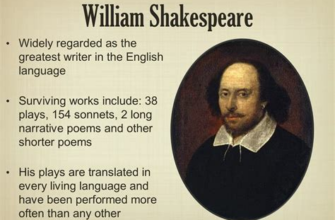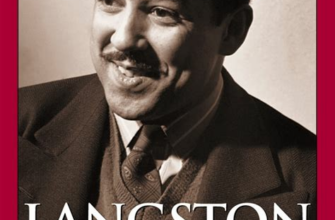Behind the tendrils of time lies an extraordinary tale, a captivating narrative that weaves imagination, creativity, and intellect into the very fabric of its protagonist. This is the chronicle of a maverick soul, a relentless explorer of the written word, whose works continue to echo across the literary landscape even to this day.
In the realm of literature, there are few luminaries who have left as indelible a mark as the illustrious individual we delve into today. A trailblazer of his time, this visionary scribe nudged the boundaries of storytelling, philosophy, and societal commentary, etching a unique path that traverses the interplay between intellectual discourse and artistic expression.
Through the lens of his extraordinary life, we are given a glimpse into a tapestry of profound insights, impassioned convictions, and thought-provoking ideas. With a pen as his compass and vivid prose as his brush, this remarkable wordsmith embarked on a transformative odyssey, pushing the boundaries of his craft and challenging the conventions of his era.
As we embark on our exploration of this literary luminary, be prepared to encounter a style that is both profound and visionary, resonating with each word and sentence. Brace yourself for a journey amidst profound introspection, social critique, and futuristic predictions, all elegantly brought forth through the creative mastery of this eminent wordsmith.
Aldous Huxley: From Words to Worlds

In this section, we delve into the remarkable journey of a visionary author who masterfully brought his ideas to life through his literary works. We explore how Aldous Huxley, the enigmatic wordsmith, artfully crafted stories that transported readers into alternate realms of imagination and thought, challenging societal norms and probing the depths of human existence.
With an unparalleled ability to wield words like a painter wields a brush, Huxley's prose danced upon the pages, weaving intricate tapestries of ideas and emotions. His words served as portals, inviting readers to step into worlds that were both fantastical and hauntingly familiar, where familiar concepts were deconstructed and reassembled with a precision that defied conventional boundaries.
Through his thought-provoking narratives, Huxley tackled themes of identity, consciousness, and the nature of reality itself. His works became intellectual playgrounds, stretching the limits of conventional thinking and challenging readers to question the very fabric of their own existence. With profound insights and a keen understanding of the human condition, Huxley's words resonated deeply, leaving a lasting imprint on the minds of those who dared to explore his literary landscapes.
Unafraid to confront the fragility of human nature, Huxley's writing possessed an unmatched depth and complexity. Each sentence was a carefully constructed puzzle piece, forming a grand mosaic of ideas that compelled readers to question the societal constructs that governed their lives. With a deft touch, Huxley unraveled the threads of human behavior, inviting readers to reevaluate their perspectives and embrace the inherent contradictions that make us who we are.
From dystopian visions of a future society to philosophical musings on the nature of happiness, Huxley's literary legacy remains a testament to the power of storytelling. His words continue to ignite the fires of imagination and inspire new generations of readers to embark on their own journeys of self-discovery and intellectual exploration.
As we delve into the life and works of this literary luminary, we witness the transformative power of words and the enduring legacy of a visionary who dared to push the boundaries of conventional thought. Join us as we embark on a voyage through the words and worlds of Aldous Huxley, where reality intertwines with fiction, and the imagination reigns supreme.
The Early Years: Exploring the Inspirations that Shaped Huxley's Early Life
In this section, we delve into the formative years of one of the most celebrated literary figures of the 20th century, uncovering the influences that played a vital role in shaping Aldous Huxley's unique perspective and creative genius.
From childhood onwards, Huxley displayed a keen sense of curiosity and a hunger for knowledge. His thirst for understanding was nurtured by a diverse array of influences that spanned literature, science, philosophy, and the arts.
One of the essential sources of inspiration for Huxley was his upbringing in a family of intellectuals. Growing up in an environment where intellectual discussions and debates were the norm, he was exposed to a wide range of ideas and perspectives from an early age. This intellectual stimulation laid the foundation for his development as a free thinker and a writer unafraid to challenge conventional wisdom.
Huxley's voracious reading habits also played a crucial role in shaping his early years. From the works of classical philosophers such as Plato and Aristotle to the groundbreaking scientific theories of his time, he devoured a vast range of literature and knowledge. This wide-ranging exploration of ideas allowed Huxley to develop a multidimensional perspective that permeated his writing throughout his career.
Furthermore, Huxley's love for the natural world and his inclination towards introspection provided him with a deep well of inspiration. Immersed in the beauty of nature and driven by a desire to make sense of the human condition, Huxley often found solace and insight in moments of reflection and observation. These profound experiences would later find their way into the themes and motifs that characterized his literary works.
As we embark on this journey through Huxley's early years, we begin to unveil the myriad influences that helped shape the mind and vision of this literary luminary. From the intellectual atmosphere of his upbringing to his insatiable appetite for knowledge and contemplation, these formative years laid the groundwork for Huxley's remarkable contributions to literature and his enduring impact on the world of ideas.
The Brave New World: Huxley's Visionary Works

In this section, we delve into the captivating literary realm of Aldous Huxley's imaginative masterpieces. By exploring Huxley's visionary works, we uncover the thought-provoking depths of his ideas and the impact they have had on the literary landscape.
- Embark on a journey through Huxley's futuristic novels, where he presents a world that is both intriguing and unsettling.
- Discover Huxley's ability to envision societal structures that challenge conventional norms and explore themes of technology, control, and individuality.
- Explore the rich symbolism and allegory embedded in Huxley's works, where he offers profound commentary on the human condition and the nature of existence.
- Reflect on the timeless relevance of Huxley's ideas, as his works continue to provoke discussions and debates about the future of humanity.
- Delve into Huxley's exploration of the fine balance between utopia and dystopia, as he presents worlds that are seemingly perfect yet inherently flawed.
- Examine Huxley's use of vivid and imaginative language to paint vivid pictures of his envisioned societies, capturing the readers' minds and stirring their thoughts.
By delving into "The Brave New World: Huxley's Visionary Works," readers gain a deeper understanding of Huxley's profound insights and the enduring impact of his literary contributions.
FAQ
Who is Aldous Huxley?
Aldous Huxley was an English writer and philosopher, best known for his dystopian novel "Brave New World" and his interest in the exploration of the mind and consciousness.
What are some notable works by Aldous Huxley?
Some notable works by Aldous Huxley include "Brave New World", "The Doors of Perception", "Brave New World Revisited", "Point Counter Point", and "Island".
What was Aldous Huxley's literary style?
Aldous Huxley's literary style was characterized by his ability to blend social satire, science fiction, and philosophical ideas. He often explored the themes of individual freedom, technology, and the potential dangers of a totalitarian society.
How did Aldous Huxley's interest in the exploration of the mind and consciousness influence his writing?
Aldous Huxley's interest in the exploration of the mind and consciousness heavily influenced his writing. He was an advocate for the use of psychedelic substances, such as mescaline and LSD, to expand one's perception and understanding of reality. This exploration of altered states of consciousness is prominent in his works such as "The Doors of Perception" and "Heaven and Hell".



